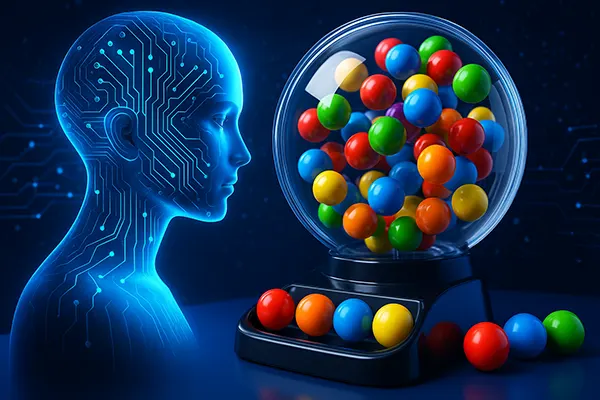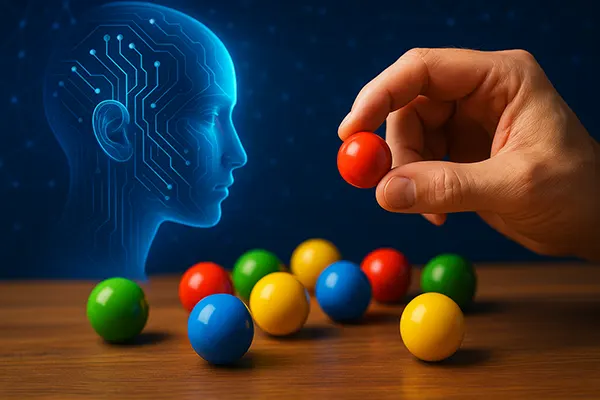
How Artificial Intelligence is Transforming Lottery Rules and Formats
Artificial intelligence (AI) has become one of the most influential technologies in modern society, and its impact on the lottery sector is particularly significant. By 2025, lotteries across the world are adapting their rules, formats, and operational systems to integrate AI-driven solutions that enhance fairness, improve security, and increase engagement. Understanding these changes is essential for both operators and players, as the industry undergoes rapid modernisation.
AI and the Evolution of Lottery Regulations
Regulatory bodies overseeing lotteries are embracing AI to create more transparent and accountable systems. Machine learning tools are increasingly used to detect irregularities and prevent fraud, ensuring that the draws remain fair. Regulators also use predictive algorithms to assess potential risks, such as abnormal ticket sales or suspicious activity, which helps maintain trust among participants.
Another major shift lies in the way compliance is monitored. AI automates the process of verifying transactions, reducing the likelihood of human error. This efficiency allows authorities to adapt rules faster and make informed decisions based on real-time data. In turn, operators must adjust to stricter yet smarter compliance requirements that protect consumers more effectively.
Furthermore, AI contributes to the development of responsible gaming policies. Lottery organisers are now obliged to integrate tools that identify problematic patterns of play. This regulatory requirement highlights the increasing role of AI not only in governance but also in safeguarding player wellbeing.
How Legal Frameworks Adapt to AI
The integration of AI into lotteries has prompted legislators to rethink traditional frameworks. Countries in Europe and Asia are already implementing AI-specific guidelines, addressing issues such as algorithmic transparency and accountability. Regulators demand that operators provide clear documentation on how AI systems function and ensure there is no bias in outcomes.
International cooperation is also expanding, as governments seek to standardise AI use in lotteries across borders. Harmonised rules reduce the risk of legal loopholes and provide a consistent experience for players regardless of location. This collaborative approach ensures that the rapid adoption of AI does not undermine fairness or legality.
At the same time, laws are being adapted to protect player data. Since AI systems rely heavily on personal information, stricter data protection measures are now mandatory. This creates a balance between technological innovation and the ethical responsibility of safeguarding users’ privacy.
AI-Driven Changes in Lottery Formats
Beyond regulations, AI is reshaping the very formats of lotteries. Traditional number draws are increasingly complemented by dynamic game types that adjust based on player behaviour. Algorithms can generate personalised lotteries, offering different odds and prize structures depending on customer preferences.
Virtual lotteries powered by AI simulations are also becoming popular. Instead of waiting for scheduled draws, players can participate in instant AI-generated outcomes, creating new entertainment opportunities. These formats appeal to a younger audience accustomed to fast digital experiences while maintaining fairness through secure AI algorithms.
Additionally, AI makes it possible to integrate interactive features into lottery games. For example, adaptive prize models can respond to real-time participation levels, ensuring that jackpots remain attractive. These innovations demonstrate how AI not only automates but also enhances creativity in lottery design.
The Rise of Personalised Lotteries
One of the most striking transformations is the personalisation of lottery experiences. AI systems analyse past participation data to suggest games tailored to individual interests. This approach increases engagement by providing more relevant options while respecting responsible gaming limits.
Personalisation also extends to prize structures. Some lotteries are experimenting with flexible reward systems where AI adjusts the distribution of winnings based on the number of participants. This model ensures that both small and large groups of players receive fair value.
Another dimension of personalisation lies in accessibility. AI-driven voice assistants and chatbots guide participants through the process, making lotteries more inclusive for individuals with disabilities. As a result, AI is not just a tool for efficiency but also a driver of inclusivity in gaming.

The Future Impact of AI on Lottery Operations
Looking ahead, AI will become central to every aspect of lottery operations. Automated customer service powered by natural language processing already handles queries around the clock, reducing operational costs while improving player satisfaction. This trend will continue as systems become more advanced and responsive.
Fraud prevention will also reach new levels of sophistication. Deep learning models are capable of analysing vast datasets to detect anomalies in real time, making it increasingly difficult for criminal activity to go unnoticed. This strengthens the overall credibility of the lottery industry and protects legitimate participants.
Finally, AI promises to improve efficiency in fund allocation. Many state-run lotteries contribute revenue to social projects, and AI tools now help determine how best to distribute funds for maximum impact. By 2025, this data-driven approach ensures that lotteries not only entertain but also provide measurable benefits to communities.
AI and Responsible Participation
A critical part of future lottery operations is ensuring responsible participation. AI systems monitor player activity to flag risky patterns, such as excessive spending or repeated late-night play. These insights allow operators to intervene proactively, offering support before gambling behaviour becomes harmful.
Educational tools powered by AI also provide personalised advice to players. By explaining odds, risks, and healthy gaming practices in accessible formats, these tools empower users to make informed choices. This reflects the industry’s growing emphasis on social responsibility.
In the long term, AI will enable a more sustainable lottery ecosystem. By balancing entertainment with protection, technology ensures that players can enjoy participation while regulators and operators uphold fairness and safety standards. This holistic approach represents the most profound change AI has introduced to lotteries worldwide.
